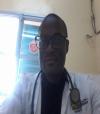Taking Treatment For Postural Orthostatic Tachycardia Syndrome. Feeling Hungry. Worried For Scleroderma

Hello My name is XXXXXXX im 26 year old female and have been diagnosed with something called autonomic nervous system - that primarly affects blood flow. At the same time I got POTS I developed a problem absorbing nutrients. Particularly Fat Malabsorption. I will be undergoing a second colonoscopy later in April to try to figure out my problem But here is my concern. I heard of a diagnosis called Diffuse Scleroderma- a type of sclerederma that affects JUST the organs. And am wondering the chances of me having that WITH postural orthostatic tachy cardia syndrome. (It is also known POTS can cause gastroparesesis small bowel overgrowth exe due to blood flow, decreasted mobility due to pots).
I have had many tests my lab work Rheumo wise so far has been XXXXXXX 1:80 speckeled pattern
Sed rate of 29
CRP of 0.1
Skin Biopsy to check for peripheral Neuropathy- Negetive - that was tested at the cleveland clinic when I was diagnosed with POTS.
CBC's and BMP's have all been normal
I have had an EGD that showed gastritis in november- Nothing more
I had a colonoscopy that showed "congestion and edema"
they did biopsies during the EGD and Colonoscopy- and found nothing.
I have had a chest angiogram to look at lungs- normal
Xray of back and abdomen- negetive (except constipation)
I have had RUQ ultrasound that was negetive
CT of Abdomen/Pelvis- Negetive
MRI Head- Negetive
chest Xray- negetive
Hida scan - negetive and a good working gall bladder.
Urinalysis- negetive and shows nothing.
I do not have any skin issues- my heels get dry sometimes but thats it
I do not have reynards syndrome.
I do not have any problems swallowing food or drink.
my biggest issue with my stomach is I always feel hungry and it growls alot after I eat.
But I am worried about sclerederma due to the fact that it seems very fatal.
All of this started the 2nd week of november after the loss of my baby due to a placental abruption (the POTS and the belly problems)
Systemic or diffuse Scleroderma involves lesions in XXXXXXX structures of the body like the heart, kidneys, lungs and digestive tract. Gastrointestinal involvement is the most common organ attained (90%) of cases. The decision to rerun endoscopic examinations on the gastrointestinal tract is very reasonable.
However, common associated signs and symptoms seen when the gastrointestinal tract is involved are not seen in your case(reflux, distention/bloating, diarrhea, fecal soilage, constipation, bacterial overgrowth).
The malnutrition especially problems with fat absorption you developed (Steatorrhea) warrant a critical investigation of the possibility of gastrointestinal involvement. The eosophagus could also be involved without apparent clinical signs. The diagnostic procedures like esophageal manometry, 24-h pH-metry, esophageal and gastric radionuclide transit studies, H2-breath tests, barium enemas, anorectal manometry and endoscopy should be done to appreciate the integrity of the gastrointestinal tract. Anti-centromere antibodies, anti-topoisomerase I, anti-RNA polymerase III, and anti-Pm/Scl antibodies should be done to actually increase certainty of the diagnosis of systemic Scleroderma.
The opinion coordinated management roles of a Rheumatologist and Gastroenterologist, in my opinion, are most welcome.
Thanks and hope this helps,
Luchuo, MD.

With raises Anti Nuclear Antibodies, nutrient reabsorption and fat malabsorption in my opinion, deserve an in depth evaluation to exclude Systemic or diffuse Scleroderma.
I understand it could be worrisome, but an appropriate management depends on an exact diagnosis. I suggest this in depth investigation be done with respect to Scleroderma. I think its a possibility.
Thanks and best regards,
Luchuo, MD.

Yes off course. But I do not think the symptoms you are experiencing are characteristic of POTS. They are more in the direction of systemic scleroderma. Excluding Scleroderma, before thinking of the possibility of POTS is my humble suggestion.
Thanks and best regards,
Luchuo, MD.
Answered by

Get personalised answers from verified doctor in minutes across 80+ specialties



